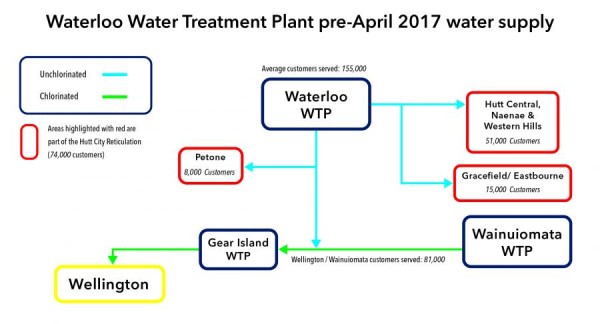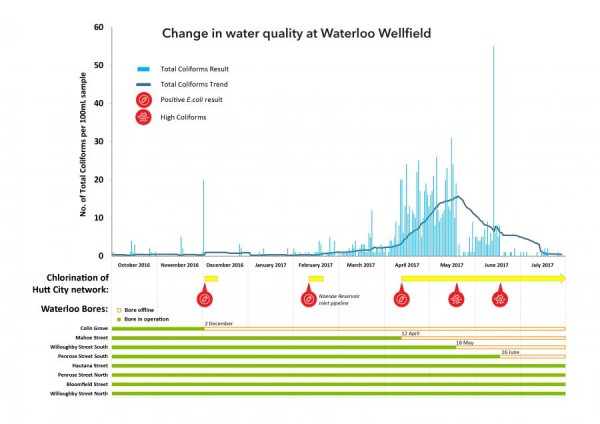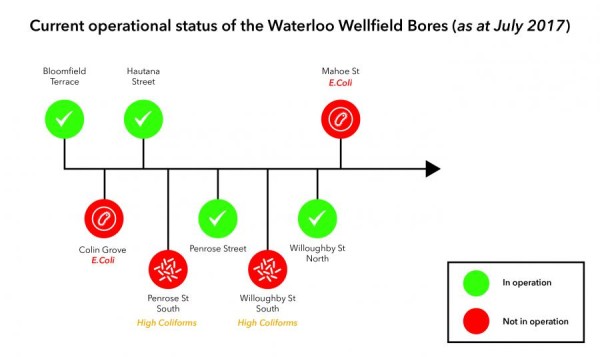Waiwhetu aquifer chlorination
Greater Wellington Regional Council has approved the permanent chlorination of Lower Hutt drinking water. The Council voted in favour of a recommendation from Wellington Water, based on our Waterloo Wellfield Water Quality Contamination Investigations Report.
Waterloo Water Treatment Recommendation
Questions and answers (updated 20/08/2018)
Waterloo Wellfield Investigations
What investigations did Wellington Water carry out before recommending that chlorine is required in Lower Hutt’s water supply?
Do you get any outside opinions on your investigations of the physical assets?
The Kaikoura earthquake was two weeks before E.coli was first detected. Surely that was a contributing factor? Did you get any outside opinions about your claim that the shaking effects were not a factor?
Who are your international experts?
Can I read a copy of the report?
Chlorine
RNZ’s Katherine Ryan speaks to Canadian water quality adviser Professor Stephen Hrudey about safe drinking water
One of the world's leading water contamination experts says New Zealand is vulnerable to another drinking water crisis because of a lack of chlorination. Professor Emeritus of the University of Alberta, Dr Steve Hrudey, prepared a 50-page analysis on the 2016 contamination of Havelock North's public drinking water on behalf of Water New Zealand. He says a failure to recognise close calls and complacency were a major factor in the crisis, as well as the avoidance of chlorination. Dr Hrudey is currently in New Zealand and speaking at the Water New Zealand Conference which runs from 20 to 22 September in Hamilton.
Chlorine is highly effective at killing most harmful bacteria that may exist in the water, or in the water supply pipes. It has been added as a precautionary measure to safeguard the water from bacteria and to ensure the water supply complies with the required drinking water standards.
To hear the Nine to Noon discussion please click on the link: Chlorine: not agent of the devil



